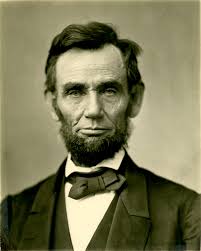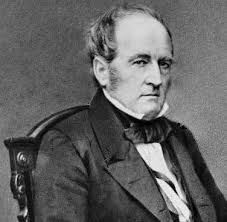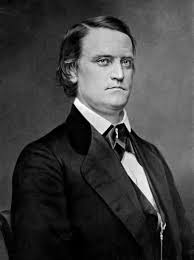“I say but little, try & mind my own business...": Sherman & Sessession, Part 1
- civilwarbreakfastc
- Jan 26, 2021
- 5 min read
Today’s post begins in 1859 where we find the red-headed Ohioan & future Civil War General living in Fort Leavenworth, Kansas helping his foster brothers Hugh & Tom Ewing with their law practice. Yup, Sherman was in the Prairies “managing property” (whatever that means) for them. His other option had been staying in Ohio and managing a salt mine for his foster father, Tom Ewing. Since Sherman, at times, seems to equate Ohio as being the equilvalent of the seventh level of Hell (particularly Lancaster), he decided to GTFO and go to Fort Leavenworth, Kansas. One is reminded of this game...

F%$&. No thanks.
Sherman, however, needed money for his ever growing family (Yes, Ellen was pregnant again when he left for Kansas).
Whilst in the middle of nowhere, Uncle Blingy (as we also call him here on the podcast) got bored. Quickly. He wanted back in the Army because he was always “perfectly at home with sound of bugle and drum”. He craved the order of military life. He craved the commradary that came with it. Having not been in the Army for a few years at this point, he was given a taste of what he loved so much when he visited his friend from his West Point days, Stewart Van Vliet. Van Vliet was stationed at Fort Riley. The visit certainly paid off, since Sherman was granted a contract to oversee the maintenance of the road back to Leavenworth. As O’Connell writes in "Fierce Patriot" "It was exactly what Sherman needed. It brought some money into Hugh and Tom’s firm, but mostly it was a tonic for his [Sherman’s] spirits."
A tonic he perhaps didn’t realize he needed. One night, he met up with a column of cavalry who were returning from scouting. He ended up trading stories with them. Between this and being at Fort Riley (and probably just being f%^*ing bored), O’Connell argues that it made Sherman realize how much he missed the army. Sherman stated “it makes me regret my being out of service thus to meet my old comrades, in the open field, just where I most like to be”.
He wanted back in. On June 11, 1859, Sherman wrote to Major D.C. Buell, who was assistant adjutant-general in the War Department in Washington, D.C. He was looking for a vacancy in said department. The reply was such that there was no openings in D.C. but…GUESS WHAT?
There’s this military academy that’s being established in Louisiana AND they need a Superintendent. YOU SHOULD APPLY TO THIS NEW MILITARY SCHOOL IN THE SOUTH (sidenote: anyone else raising their eyebrows? Military Academy. South. There is talk of secession. There is political turmoil between north and south. Hmmmm…why are they building a military academy down there? Sherman does not really seem to question this either.)
But he applied. Sherman wrote a few letters and in July of 1859, he received a reply from Governor Wickliffe in Louisiana that they would, indeed, like to have him as the Superintendent. A few sources state that General Bragg and General Beauregard (yes, very soon to be Generals in the Confederate Army) had a hand in him getting this position...
BUT because it wouldnt' be studying something to do with the Civil War if there wasn't conflicting evidence...
Sherman states in his memoirs that neither of these men had a hand in getting him the position:
"During the Civil War, it was reported and charged that I owed my position to the personal friendship of General Braggs and Beauregard, and that, in taking up arms against the South, I had been guilty of a breach of hospitality and friendship. I was not indebted to General Bragg, because he himself told me that he was not even aware that I was an applicant, and had favored the selection of Major Jenkins, another West Point graduate. General Beauregard had nothing whatever to do with the matter..."
He could also be throwing a bit of shade their way too for the their parts in the Civil War but hey, they threw shade at him. Especially Beauregard. At Shiloh. It involved Cump’s tent and a certain southern General using it. Cump was, literally, not a happy camper after Day 1 of Shiloh. More on that some other time (like when we cover Shiloh in an episode in the near future).
Whatever the case and whoever the hell his references were and what strings were pulled or not pulled, Sherman got the job. It paid $3,500.00 a year, a considerable sum in those days.
He found himself in Louisiana in Autumn of 1859, overseeing the building of this soon-to-be military academy near Alexandria, Louisiana. The Academy was to open in January of 1860. Sherman describes it is in his memoirs stating that "it was located on an old country place of 400 acres of pineland, with numerous springs, and the building was very large, and handsome."

Louisiana State Seminary & Military Academy as it would have looked when Sherman was Superintendent.
Sherman had to work quickly when he got there, since the Academy was slated to open on January 1, 1860. We all know when it comes to being quick, Blingy is the master (especially at marching to places like the sea through states called Georgia). He immediately found carpenters that could finish the inside of the school (mess-tables, benches, blackboards, etc) while he worked on corresponding with the professors of the Academy and the Board of Directors. There was also other administrative things he had to take care with his fellow professors and the Board of Directors – bylaws, making the opening date official, how much tuition would be, what the exact name of the school would be, etc.
The Seminary opened, as planned, on January 1,1860. Tuition was $60.00 for the year. There were 60 Cadets that first day, with 16 of them having their tuition covered by the State of Louisiana. By mid-winter, that number had went to 73. Sherman describes the school as being very much like West Point or the Virginia Military Institute “but without uniforms or muskets”. There were, however, roll-calls, sections and recitations. It wasn’t exactly like completely being back in the Army, but Sherman, nonetheless, seems to have been back in his element and, dare I say, happy. Sherman states in his memoirs that he was always treated with “the greatest courtesy and kindness”.
Flash foward to November of 1860 now. The election for the President of the United States is loomin with these 4 candidates running...
Sherman writes a letter to wife Ellen on November 3, 1860. He talks of life at the Academy, and his horse Clay whom he feeds “oats at about a dollar a bushel & hay $60 a ton but he don’t appear to appreciate”. He also mentions the turmoil that is slowly bubbling towards the surface. Turmoil that he hopes will pass:“People here talk not as though Disunion was a fixed thing – men of property say that as this constant feeling of danger of abolitionism exists they would rather try a Southern Confederacy – Louisiana would not secede but should South Carolina secede, I fear other Southern states will follow and soon General Anarchy will prevail – I say but little, try & mind my own business, and await the issue of Events”. He carries on in his letter, speaking of the beautiful weather, that when Ellen moves down there (yes, his plan was to move his family to Louisiana to be with him), and she “may count on as much Euchre as you please” in the evenings, especially as he has a friend, Dr. Clark, that enjoys playing Euchre. He says the house for them will be ready by Christmas but he says he wants to wait until after November to start the process of moving. One can surmise he is doing this because he is waiting to see how things go with the election.
And that is where we will leave Sherman. Things are unstable politically, and it clear he knows this. As was always his way with politics, Sherman is steering clear, minding his own business as he himself stated in his letter to Ellen & hoping, that the fears he relayed to Ellen would not be realized.








Having spent time in Louisiana is one of my favorite things about Sherman. Seems to be a commonplace theme for a lot of the military men itching to get back to the Army at some point when they've grown bored or tiresome of a non-military life. Thanks for the post!
Poor Uncle Blingy. I think he would have been happy in this position because, I feel, a college professor/superintendent job would have suited him (i.e., he could talk and talk and talk all he wanted with a captive audience). Plus, it was far from Ohio.
Of course, Ellen would have hated it so there is no telling how long it would have lasted. haha.